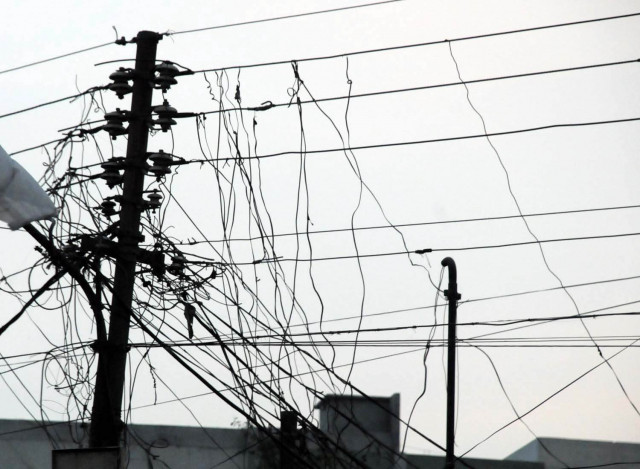Underpowered everywhere
Nothing is going to change, until there is a change in the culture that nurtures circular debt & grubby self-interest.

Underpowered everywhere
The federal minister for water and power on July 14 admitted that once again circular debt has ballooned to Rs300 billion, that unannounced loadshedding was rife across the country and he invoked the assistance of the Deity in turning around what by now is a rolling disaster. The Rs480 billion that the government poured on the fires of circular debt was little more than an accelerant to the activities of the monster. The entire energy chain is now crippled by power theft and line losses as well as the chronic and debilitating unwillingness to pay bills in a timely manner.
The culture of non-payment (and not just of electricity bills, the problem infects the entire economy) negates any attempt to roll it back. Power defaulters are allowed to continue to have a supply because they are ‘influential’. On the rare occasions when supplies are interdicted to debtors there is the swift application of political pressure behind the scenes, and lo-and-behold the lights are quickly back on, the bills still unpaid.
Speaking at a press conference on July 14, the water and power minister looked distinctly underpowered himself. Two transformers in Lahore have ‘defaulted’ — shut down — with the loss of 1,500MW. Power generation is now down to 13,000MW whereas demand, in the height of the summer, is now between 19 and 20,000MW. In that scenario power managers have no choice but to resort to unannounced loadshedding as they try to prevent overload and damage — further damage — to the creaking and out-of-date system.
By way of mitigation the minister said that the government had been providing uninterrupted power to industries for the last 10 months, a statement that is at variance with those made by some of those industries, in particular steel. On the same day that Khawaja Asif was ‘looking heavenwards’ the Pakistan Steel Re-rolling Mills Association was warning of massive job losses and social unrest if the government did not restore their supplies.
The dim-bulbs that pass for managers across the power sector are matched for their lack of luminosity by their political masters, creating a circle of mediocrity that feeds on itself. Grand talk of short, medium and long-term plans does nothing to lighten the burden carried by the ordinary consumer. Self-serving mendacity is no solution, and the minister was, at least, good enough to admit that ‘it was not in the government’s control to remove deficiencies in the system’. So what is in the government’s power? Anything? Nothing? A few bits here and there? Unless and until there is a change in the culture that nurtures circular debt and grubby self-interest and enrichment, then nothing is going to change. This is self-inflicted damage; there is no foreign hand in the background. Fixable? Yes, but only via some heroic surgery.
Published in The Express Tribune, July 16th, 2014.
Like Opinion & Editorial on Facebook, follow @ETOpEd on Twitter to receive all updates on all our daily pieces.















COMMENTS
Comments are moderated and generally will be posted if they are on-topic and not abusive.
For more information, please see our Comments FAQ